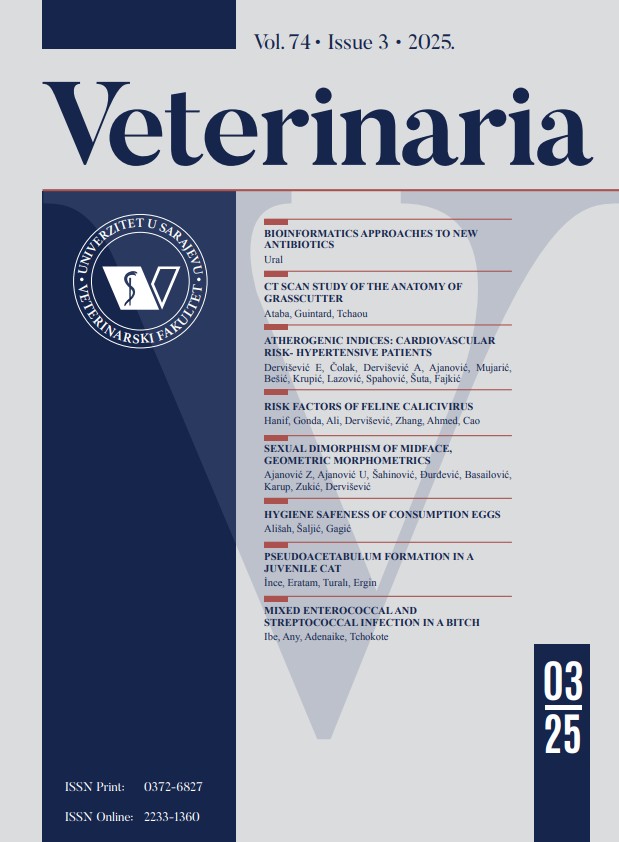Dietary black cumin (Nigella sativa) seed oil affects serum lipids in chicken broilers
Keywords:
black cumin seed oil, chicken broilers, blood serum biochemical parameters, fatty acid composition of oilAbstract
The research was performed on 40 chicken broilers of Cobb provenience to investigate the effect of dietary black cumin seed oil on some blood biochemical parameters in chicken broilers. 40 chicken broilers who were included in the 42 days lasting experiment were divided into two groups, each one of 20 individuals. Group K was the control – with no added oil in feed mixture and the second group P was the experimental one – chickens were fed with 0,025 g of p.o. administered black cumin seed oil. Feed and water supplies were ad libitum. Microclimate conditions (light, temperature and airflow) were maintained according to the technological procedure. Blood samples were taken from the wing vein of all animals from both groups at age of 25, 32 and 39 days. The following blood serum biochemical parameters were determined: total lipids, triglycerides, total cholesterol, albumen and calcium. Dietary black cumin seed oil significantly (P<0.05) affected serum lipid components, particularly total lipids, but not albumen and calcium in chicken broilers. Possible reason for these findings could be dietary fat component as well as fatty-acid composition of added black cumin seed oil.
Downloads
Published
How to Cite
Issue
Section
License
Copyright (c) 2020 Aida Hodžić, Amina Hrković-Porobija , Abdulah Gagić, Muhidin Hamamdžić, Aida Kavazović, Eva Pašić-Juhas , Aida Kustura, Teufik Goletić

This work is licensed under a Creative Commons Attribution 4.0 International License.







